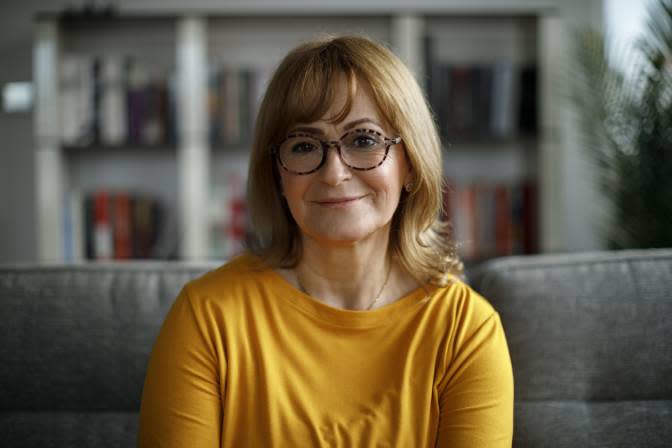50% OFF a Complete Pair of Glasses
*Restrictions apply. Click here for details.
Nationwide Vision Eye Care Services in Arizona
At Nationwide Vision, we offer personalized eye care for the entire family. Nationwide Vision provides complete eye care services at 81 Arizona locations. Our Arizona eye doctors and staff are trained to diagnose and treat a variety of complex vision conditions. We are also your local eye care professional for routine exams, glasses, contact lenses & more.
Whether you are experiencing a vision condition or just need a checkup, visit your local Nationwide Vision today. Our experts are here for you. We have offices in Phoenix, Tucson, Scottsdale, Gilbert, Glendale, Mesa, and many other Arizona communities.
Comprehensive Eye Exam

An annual comprehensive eye exam helps you stay on top of your vision care. Comprehensive eye exams help diagnose vision conditions early before they become serious. Our highly skilled Arizona eye doctors can evaluate the complete health of your eyes.
Cataract Treatments
A cataract is a cloudy or opaque area in the normally clear lens of the eye located behind the iris. Exposure to ultraviolet radiation can cause cataracts. Because of this, cataracts can be more common in sunny states such as Arizona. Visit Nationwide Vision for cataract diagnosis and treatment today.
Diabetic Retinopathy Treatment
The Arizona Department of Health Services estimates that 1 out of 10 Arizona residents have diabetes. Diabetes can lead to diabetic retinopathy, an eye condition that causes progressive damage to the retina.
Dry Eye Treatment
Dry eye is a condition in which there are insufficient tears to lubricate and nourish the eye. Dry air and wind can contribute to irritation caused by dry eye. Nationwide Vision's Arizona eye doctors can expertly treat this common vision condition.
Eye Floaters
Floaters are shadowy images that appear in the field of vision. They are caused by particles floating in the fluid that fills the inside of the eye. Floaters can cause vision problems that make it difficult to see.
Contact Lenses

Nationwide Vision in Arizona offers a wide selection of contact lens types and brands to fit your unique needs. We offer disposable soft contact lenses, bifocal/multifocal lenses, and toric contact lenses for those with astigmatism.
Comprehensive Eye Care
At Nationwide Vision, you will receive comprehensive eye care from our trusted staff. All our eye doctors are Arizona Board of Optometry certified optometrists. We focus on maintaining the health of your eyes with routine eye exams, preventative care, and treatment.
Kids' Eye Exams
Nationwide Vision is staffed with highly trained eye doctors who specialize in pediatric eye care. We offer comprehensive eye examinations and vision development tests for the next generation.
Specialty Contact Lens Care Service
If you have poor vision issues caused by an eye disease or condition, trust the team at Nationwide Vision. We can help you see more clearly and comfortably with specialty contact lenses.
Glaucoma Treatment
Nationwide Vision is your Arizona glaucoma specialist. Glaucoma is a group of eye conditions that damage the optic nerve. Glaucoma is commonly referred to as “the silent thief of sight” because its symptoms develop slowly and often go unnoticed.
Macular Degeneration Treatment

Macular degeneration is an eye disease affecting the macula. This is the center of the light-sensitive retina at the back of the eye. Macular Degeneration can cause loss or blurriness of central vision.
Pterygium Treatment
Pterygium is a noncancerous growth of fleshy tissue on the conjunctiva. This is the clear tissue that lines the eyelids and covers the eyeball. This condition can be caused by exposure to UV radiation. To avoid this condition, it is important to wear UV-blocking sunglasses when exploring Arizona’s outdoors.
Ocular Emergencies
Nationwide Vision is equipped to diagnose and treat eye care emergencies. We welcome patients experiencing ocular emergencies. These include detached and torn retina, eye allergies, infections, black eye, miscellaneous objects lodged in the eye (like a splinter), etc.
Diabetes Eye Exams
People with Type 1 and Type 2 diabetes are at higher risk of developing certain eye diseases. Because of this, it is important for Arizona residents with diabetes to get annual comprehensive eye exams.
Low Vision Treatment
Few people are totally without sight. Most people who are classified as "blind" have remaining sight. If you have low vision, The doctors at Nationwide Vision can help enhance visual function and improve quality of life.
